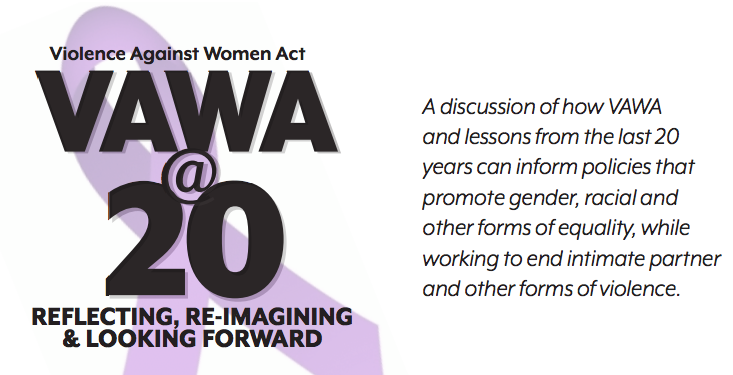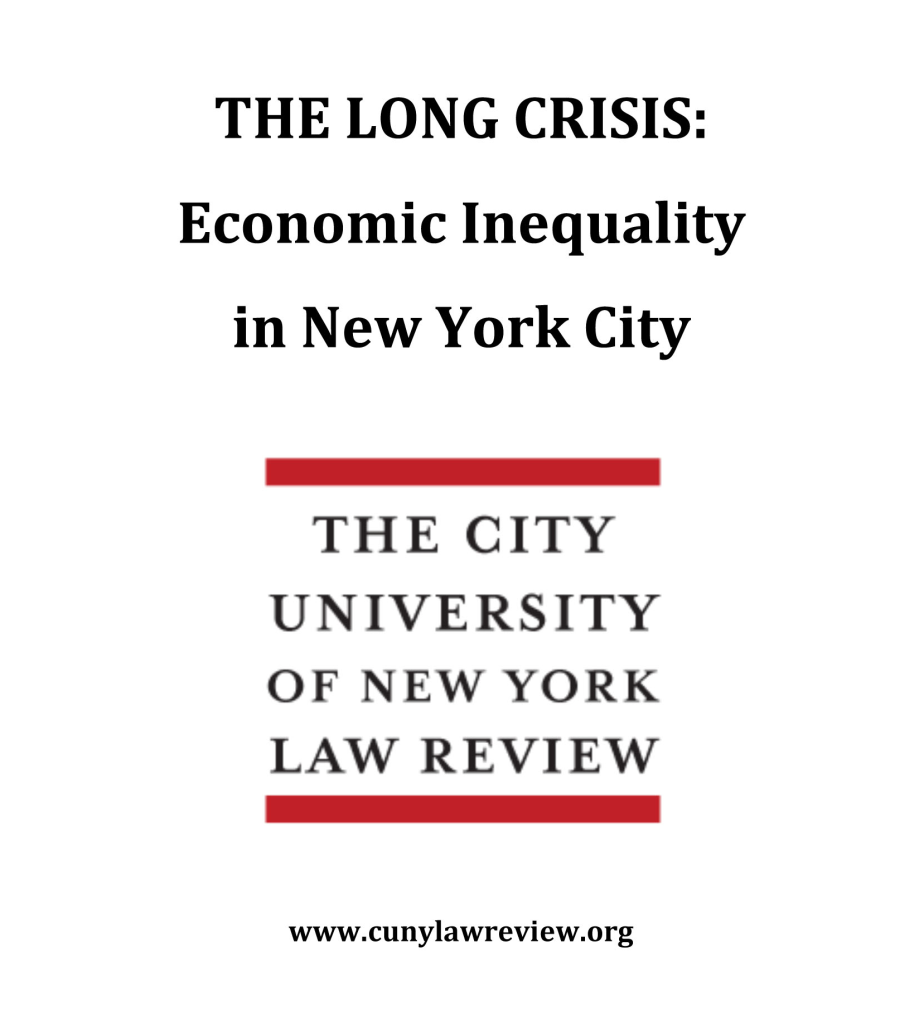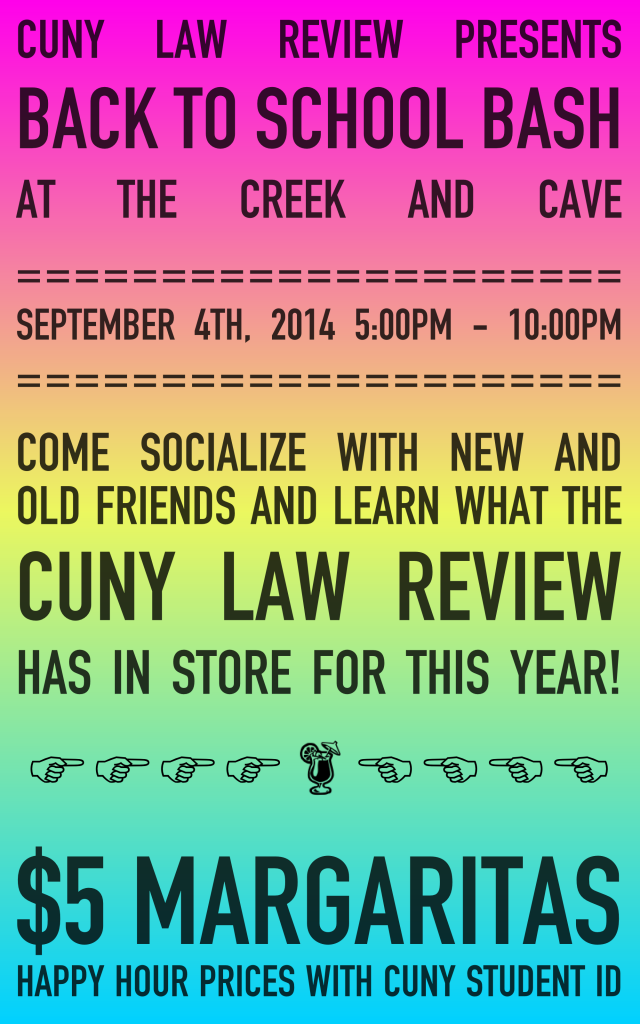The CUNY Law Review is excited to introduce a brand new discussion series called CUNITY Conversations. This series is designed to be an informal space for students and professors to discuss a particular guided topic each month.
The September installment of CUNITY Conversations is this Wednesday, September 10, from 6-8pm in the Community Room (3/116).
The Law Review’s Notes and Comments student author and 3L, Kara Wallis, will be co-leading a discussion on reproductive justice and the foster care system with Farah Diaz-Tello, CUNY alum and staff attorney at National Advocates for Pregnant Women (NAWP).
Kara’s Notes and Comments article, “No Access, No Choice: Foster Youth, Abortion, and State Removal of Children,” tracks the way systems fail to provide a youth in foster care with resources necessary to make autonomous choices about her reproductive life. The CUNITY Conversation around this piece will focus particularly on legal and social barriers to terminating pregnancy, including judicial bypass proceedings, and remaining a parenting youth while being a ward of the state.
Please attend for a riveting discussion with your peers and colleagues. This series is not a question-answer panel, but a DISCUSSION, so attend, eat snacks, and feel free to speak up, ask questions, or suggest your own ideas and thoughts on this month’s topic at the event next week.
Kara Wallis, student author, is a 3L at CUNY Law. Through the narrative of the life course of a foster youth, her piece tracks the way the system fails to provide foster youth with resources necessary to make autonomous choices about their reproductive lives, focusing particularly on barriers to terminating pregnancy and remaining a parent after giving birth. Before law school, Kara worked at National Advocates for Pregnant Women (NAPW) as a program associate, and has since interned at the Bronx Defenders and Brooklyn Family Defense Practice, defending low-income parents against accusations of abuse and neglect, work she dreams of continuing after graduation. Kara is a co-chair of CUNY Law’s Law Students for Reproductive Justice, and a student member of the New York Bar Association’s Sex & Law Committee.
Farah Diaz-Tello, JD, is a staff attorney at National Advocates for Pregnant Women (NAPW), a 501(c)(3) that works to secure the human and civil rights, health and welfare of all women, focusing particularly on pregnant and parenting women, and those who are most vulnerable to state control and punishment – low income women, women of color, and drug-using women. Farah is a graduate of CUNY Law, where she was a Haywood Burns Fellow in Civil and Human Rights. Her work at NAPW has focused on the rights to medical decision-making and birthing with dignity, and on using the international human rights framework to protect the humanity of pregnant women regardless of their circumstances. A proud Texan, she is an alumna of the University of Texas at Austin.




